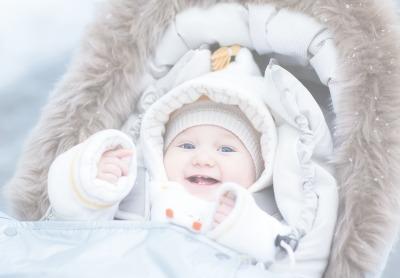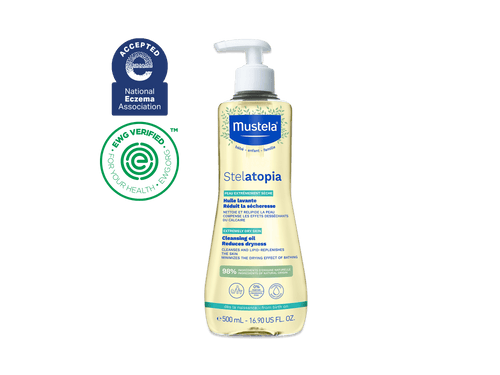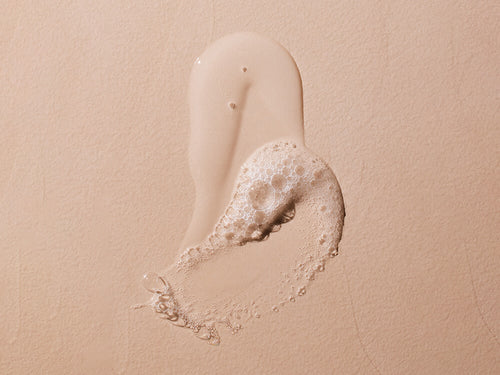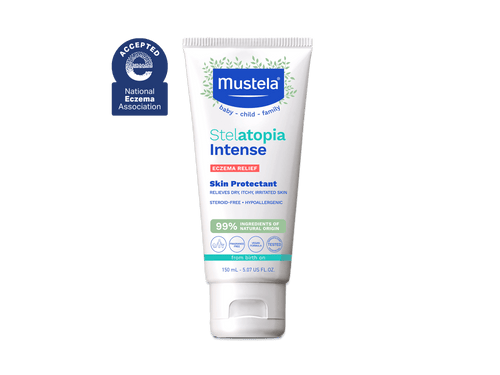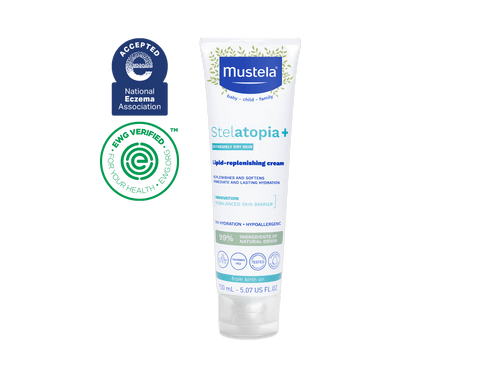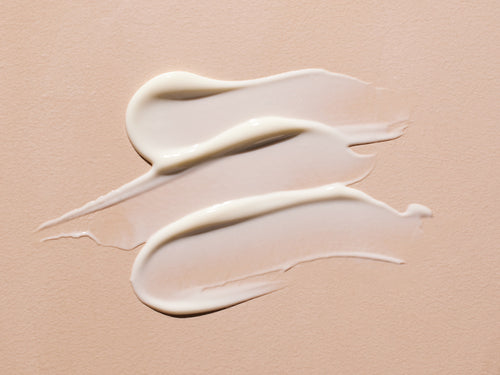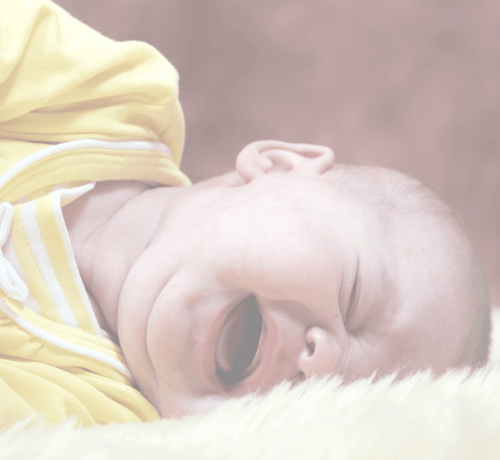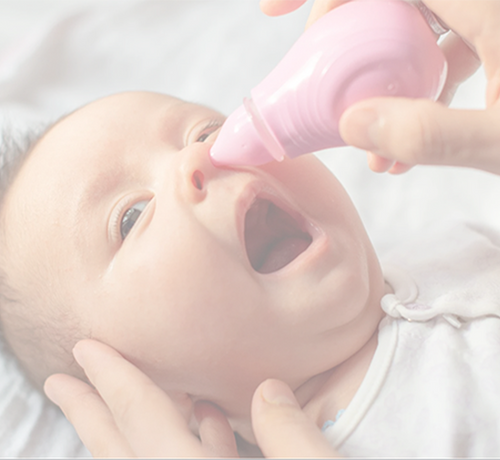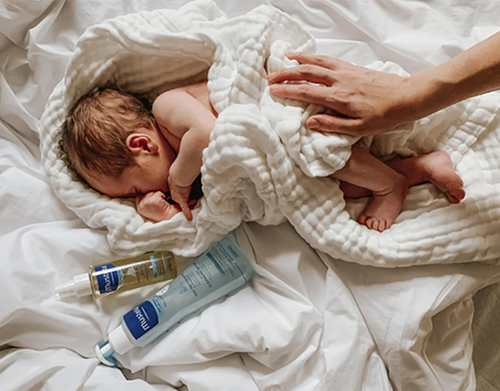Many parents ask us, “What’s the best season or climate for my baby’s eczema?” Unfortunately, the answer to that question can be tricky. Here’s the rule of thumb we usually tell them:
A baby’s eczema flare-up can be triggered by anything that makes their skin dry, makes their body sweat, or puts their skin in contact with allergens.
Even the wind can contribute to an eczema flare-up because of its tendency to dry out your little one’s skin. Based on that knowledge, you might assume that a wet or temperate climate is best for your eczema-prone child. Yes, a wet climate helps your baby’s skin preserve its moisture. And, yes, a temperate climate helps your baby’s body stay cool. But these factors don’t necessarily mean they’re always right for your child’s eczema-prone skin.
In fact, each season—and the climate it brings with it—has advantages and drawbacks. To help you gain an understanding of each, Mustela’s experts have put together a guide to the seasons, their climates, and how they affect your baby’s eczema.
Spring

The benefit of spring, as it applies to eczema, is its mild temperatures. Depending on where you live, spring is not too hot and not too cold. It’s usually just right. Your baby can go outside without sweating, and the moist air keeps their skin from drying out too quickly.
The drawback of spring is that the air is thick with allergens. If your baby suffers from seasonal allergies, this is the time when irritants kick into high gear. That’s because pollen is everywhere. Add to that the fact that your neighbors start to mow their lawns and you can see why spring isn’t necessarily the best time of year for eczema-prone skin.
So what’s a concerned parent to do? Keep their child inside away from all those triggers? Definitely not!
Even during times when seasonal allergies are rampant, you can still let your child go outside to play. You simply need to take a few precautions beforehand. The first—and most important—thing you should do is apply an emollient cream, like Stelatopia Emollient Cream, all over your child’s body. The cream will set up a protective barrier on your little one’s skin that will keep allergens at bay.
We also suggest monitoring the pollen count and keeping your baby inside when it’s high. To ease this process, hide some movies or toys where your child won’t find them. When they can’t go outside, bring out one of the hidden toys so they have something new to do.
If your little one just has to go out, establish a set amount of time after which they must come back inside. In addition, safeguard your child’s skin by choosing long sleeves and long pants. This type of clothing will protect your little one’s delicate skin from potential irritants.
Summer

Contrary to popular belief, summertime can be a great season for children with eczema-prone skin. This is because of the phototherapy principle, which has found that eczema-prone skin is less frequent in regions where the UV index is higher.
That’s not to say you should send your child out into the summer sun without protection. It just means that a little bit of sun can help your baby’s sensitive skin stay healthy. Here’s how to get the most out of the summer while still protecting your little one from eczema flare-ups.
During the summer months, it’s important to apply an emollient product like Mustela’s Stelatopia Emollient Balm before letting your child go out to play. It’s equally important to top that off with a sunscreen formulated for sensitive skin, like Mustela's SPF 50 Mineral Sunscreen Lotion. The emollient product will keep environmental triggers like grass and pollen from igniting a flare-up, and the sunscreen will keep the sun’s UV rays from burning your little one’s skin. Your child can even go swimming if you take these important precautions.
These aren’t the only things you should do to keep eczema flare-ups at bay during the summer. Because of the high heat, always monitor your child for profuse sweating. If they’re sweating too much, it’s time to come in, have a cool bath, and apply another layer of emollient product.
For added protection during the dog days of summer, limit your child’s outdoor time to the early morning and later afternoon hours. Remember to keep plenty of fun indoor activities on hand so your little one doesn’t feel like staying inside is a punishment.
Fall

Fall is almost the perfect time for those who suffer from eczema. Temperatures are cooler and the sun isn’t as intense. Yes, there are still certain allergens in the air, but they’re often less concentrated than in the spring. This is good news for your eczema-prone child. But even though there’s less to be concerned about during the fall months, but you still need to be careful.
During the fall, continue applying emollient products like Mustela’s Stelatopia cream and balm. And although the temperatures are cooler this time of year, keep your child’s skin protected with an SPF 30 or 45 sunscreen. Doing these two things will remove 95 percent of the triggers from your child’s environment.
The only other thing you need to be careful of is if your child begins to sweat too much. The cool temperatures can lull them into a false sense of security where they think they can play as hard as they want. If you notice profuse sweating from the heat or from activity, it’s time to bring your little one inside.
A cool bath will usually do the trick to prevent an eczema flare-up after excessive sweating. For extra assurance, add some of Mustela’s Stelatopia Bath Oil to the water and use Mustela’s Stelatopia Cleansing Cream and Stelatopia Foam Shampoo.
Expert tip: After the bath, dress your baby in Mustela's Stelatopia Skin Soothing Pajamas. Made with natural ingredients, these pajamas deliver skin-soothing moisture all night long so your baby can rest well.
Winter

If fall is the easiest season to deal with, winter may be the most difficult for babies with eczema. That’s because the cold air has the same drying effect as high heat. Add to that the fact you usually use dry air to keep your house warm and you can see why winter is so hard on eczema-prone skin.
The best remedy for all this dry air assaulting your baby’s skin is still an emollient product. Emollient products protect your child’s skin from becoming drier than it already is, regardless of the season or climate. That’s why it’s one of the surest ways to treat eczema-prone skin. Apply the emollient product to your little one’s skin multiple times a day to prevent flare-ups that can result from dryness.
Here are a few other tips to consider during the winter months:
- Keep the humidity in your child’s room (or your whole house) above 30 percent. We suggest purchasing a humidifier that will put warmth and moisture into the air.
- Layer your child’s clothing so they don’t get too hot. A soft cotton shirt, thin flannel shirt or jacket, a thicker coat, and a cuddly blanket should suffice.
- Continue applying sunscreen on exposed skin even during the winter months. Your child’s skin can burn just as easily in January as it can in July.
If you follow these simple tips and always include skin care products specially formulated for eczema-prone skin in your baby’s daily routine, your little one will be happy, healthy, and eczema-free—regardless of the season or climate.


